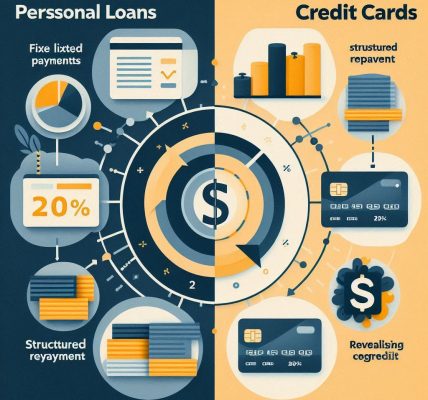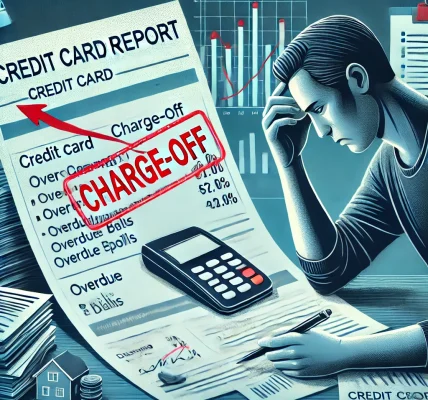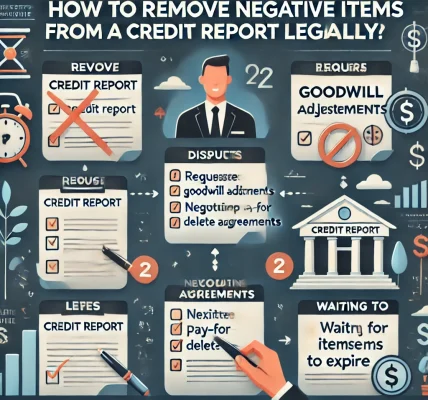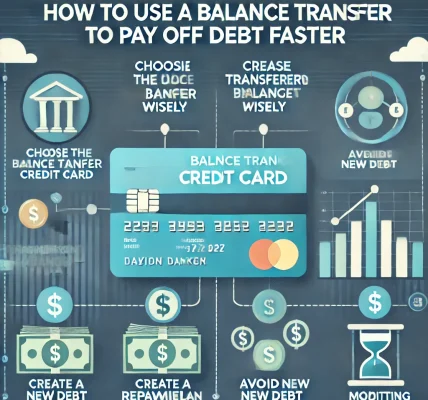In today’s fast-paced financial world, managing debt and maintaining a healthy credit score can be a challenging task. Whether you are dealing with overwhelming credit card bills, personal loans, or a combination of multiple debts, professional credit counseling can help guide you toward a better financial future. If you’re struggling with your finances, you don’t have to go it alone. Seeking assistance from credit counseling services can be the key to regaining control of your money and improving your financial situation.
What is Credit Counseling?
Credit counseling is a professional service that provides guidance on managing your finances, paying off debts, and improving your credit score. The primary goal of credit counseling is to help individuals take control of their financial situation, avoid bankruptcy, and learn sound financial practices that will improve their long-term financial health.
Credit counselors are trained professionals who assess your financial situation, discuss your goals, and provide advice on budgeting, debt management, and credit improvement strategies. They offer personalized financial plans tailored to your specific needs and challenges.
Why is Credit Counseling Important?
The need for credit counseling arises when individuals find themselves overwhelmed by debt or struggling to maintain a healthy credit score. Here are some reasons why credit counseling is so important:
1. Debt Management
One of the most significant benefits of credit counseling is the ability to develop an effective debt management plan (DMP). If you have multiple debts, such as credit card balances, personal loans, or medical bills, it can be difficult to keep track of payments and interest rates. A credit counselor can help consolidate your debts into a manageable plan, often negotiating lower interest rates and even reducing monthly payments.
2. Avoiding Bankruptcy
Many people turn to credit counseling when they are on the verge of filing for bankruptcy. Credit counselors can work with you to develop a plan that may prevent bankruptcy, which can have a long-lasting impact on your credit history. By assessing your income and expenses, credit counselors can provide practical steps to help you stay afloat financially and avoid bankruptcy as an option.
3. Improving Your Credit Score
A poor credit score can have a significant impact on your financial life, affecting your ability to secure loans, rent an apartment, or even get a job. Credit counseling services often provide strategies to improve your credit score by advising you on how to reduce outstanding debts, make timely payments, and manage credit responsibly.
4. Learning Financial Management Skills
Credit counselors don’t just focus on immediate debt relief; they also teach clients valuable financial management skills that can last a lifetime. You will learn how to create and stick to a budget, understand credit reports, and make smarter financial decisions moving forward. These skills are essential in helping you avoid future financial pitfalls.
How Does Credit Counseling Work?
Credit counseling involves a detailed analysis of your financial situation. The process generally follows these steps:
Step 1: Initial Consultation
The first step is usually an initial consultation with a certified credit counselor. During this session, the counselor will review your financial information, including your income, expenses, debts, and assets. You may be asked to provide documentation such as credit card statements, loan details, pay stubs, and tax returns.
Step 2: Debt Analysis
Once the counselor has a clear understanding of your financial situation, they will help you analyze your debts. The goal is to determine how much you owe, the interest rates you’re paying, and the payment terms for each debt.
Step 3: Debt Management Plan (DMP)
Based on the analysis, the counselor may recommend a Debt Management Plan (DMP). This plan involves negotiating with your creditors to reduce interest rates, waive fees, or consolidate your debts into one monthly payment. In some cases, credit counseling may even help you negotiate a lower settlement amount for your debt.
Step 4: Implementation and Monitoring
Once your DMP is in place, the credit counselor will assist in managing the payments to creditors and monitor your progress. They may also provide regular follow-up sessions to ensure that you’re staying on track with your financial goals.
Benefits of Credit Counseling
While credit counseling requires a time commitment and may involve some financial costs, the benefits far outweigh the drawbacks for many individuals. Below are some key benefits of working with a credit counseling service:
1. Expert Guidance
Credit counselors are professionals with the experience and expertise to help you navigate through complex financial issues. They are trained to help you assess your situation, offer advice, and provide you with strategies to improve your financial health.
2. Lower Interest Rates
One of the key benefits of credit counseling is the potential to negotiate lower interest rates on your debts. Many credit counselors have established relationships with creditors, allowing them to secure lower rates and reduce the overall cost of your debts.
3. Consolidated Payments
With a Debt Management Plan, you can consolidate your monthly payments into one manageable payment. This makes it easier to keep track of your debts and reduces the risk of missing payments, which can lead to late fees and damage to your credit score.
4. Avoiding Scams
There are many scams in the credit counseling industry, so it’s crucial to choose a reputable organization. A professional credit counselor can help you avoid fraudulent schemes and connect you with legitimate resources to improve your financial situation.
5. Support and Motivation
Debt repayment can be emotionally draining, and it’s easy to feel overwhelmed. Credit counselors provide support and motivation, helping you stay focused on your financial goals and providing encouragement as you work toward becoming debt-free.
How to Choose a Credit Counseling Service
Not all credit counseling agencies are created equal, so it’s essential to do your research before choosing one. Here are some tips for selecting a reputable credit counseling service:
1. Check for Accreditation
Look for agencies that are accredited by reputable organizations, such as the National Foundation for Credit Counseling (NFCC) or the Financial Counseling Association of America (FCAA). Accreditation ensures that the agency follows ethical standards and provides high-quality services.
2. Review Fees
While many credit counseling services offer free consultations, some may charge fees for their services. Be sure to inquire about any fees upfront and ensure that they are reasonable. Legitimate agencies should be transparent about their charges.
3. Look for a Track Record
Choose a credit counseling agency with a proven track record of helping clients successfully manage their debts. Research reviews and testimonials from other customers to gauge the effectiveness of the service.
4. Avoid High-Pressure Sales Tactics
Reputable credit counseling agencies do not pressure clients into signing up for services or making immediate decisions. Take your time to understand your options before committing to any program.
Is Credit Counseling Right for You?
If you’re struggling with debt or have concerns about your credit score, credit counseling may be a good solution. It can provide you with the tools and strategies you need to regain control of your finances and improve your overall financial health. However, credit counseling is not a one-size-fits-all solution. Before deciding if it’s right for you, carefully consider your financial goals, debt load, and willingness to commit to the process.
It’s important to approach credit counseling with an open mind and a willingness to learn. By following through with the advice and strategies provided by credit counselors, you can improve your financial situation and avoid falling into the same patterns of debt in the future.
Conclusion
In conclusion, credit counseling can be an invaluable resource for individuals who are struggling with debt and seeking a way out. Professional credit counseling services can provide expert guidance, debt management strategies, and the necessary tools to help you regain control over your financial future. By taking the first step toward credit counseling, you can set yourself on the path to financial freedom and a brighter financial future.




